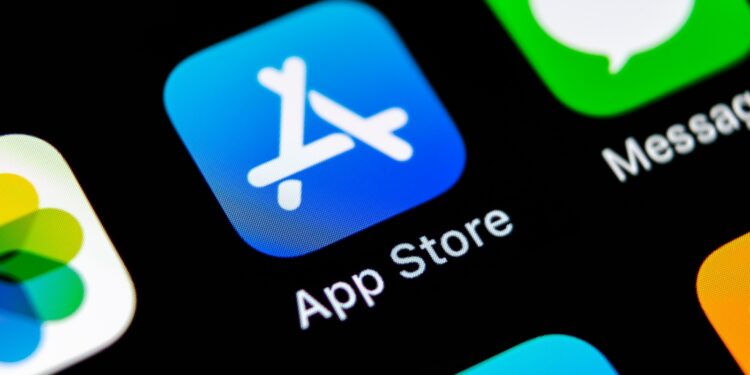Apple is under legal pressure in the US. After years of wrangling with Epic Games and other developers over control of the App Store, an appeals court has ruled that Apple cannot, for the time being, enforce a reversal of recently introduced rule changes. The decision affects not only Apple itself, but also developers and users, who will be granted more freedom to make purchases outside of the app in the future.
The U.S. Court of Appeals for the Ninth Circuit has denied Apple's request for an immediate stay of the new App Store rules. This leaves the current rule in place, which allows app developers to link to purchase options outside the App Store in their applications. Apple cannot charge commissions for such external purchases and has no influence over the design of the links or buttons leading to them.
Court rejects urgent application
Apple had hoped to temporarily halt the implementation of the changes ordered in May by filing an emergency motion. The goal was to delay the new regulations until the appeal proceedings had been concluded. However, the court did not see sufficient grounds for this. In its reasoning, the appeals court stated that Apple would have had to meet several conditions to obtain a stay: the appeal had to be highly likely to succeed, Apple would have to suffer significant and irreparable harm without a stay, and there could be no serious detriment to other parties involved or the public interest. After review, the court found that these conditions were not met.
Apple fears massive losses
Apple argued that the decision compelled the company to grant third parties free access to its own products, services, and intellectual property. It also wanted to be able to continue charging fees for external purchases and also determine the design of the corresponding links. According to Apple, the new regulations could cost the company hundreds of millions to billions of dollars annually. This is precisely why Apple saw the need to delay implementation until a final decision was made. However, the court did not consider these projections sufficient to justify the stay.
Background: Legal dispute with Epic Games
The current situation is the result of a long-running legal dispute between Apple and game developer Epic Games. The case began in 2020 after Epic attempted to incorporate its own payment system into Fortnite to circumvent Apple's 30 percent commission. A US judge later ruled that Apple must change its App Store rules. Developers should now be allowed to direct their users to alternative online purchasing options—without resorting to in-app purchases.
- After a multi-year appeals process, Apple finally complied with this order, but attempted to maintain control: The company introduced fees of between 12 and 27 percent for such external purchases and set precise guidelines for the design of links. Epic Games considered these measures inadequate and filed another lawsuit. A court subsequently sided with Epic and ruled that Apple could neither charge fees for external purchases nor control the design or language of purchase notices. Apple appealed and simultaneously attempted to gain time with an emergency motion – unsuccessfully.
US App Store under supervision: Apple loses influence
The appeals court's decision is a setback for Apple. Until the appeals process is finally resolved, the company must adhere to the new rules. Developers are allowed to refer their customers to web offerings, but Apple is not allowed to charge a commission for doing so and is not allowed to impose design requirements. A lot is at stake for Apple – not only financially, but also in terms of control over the App Store. For developers and users, the decision means more freedom and transparency in digital purchases. Whether Apple will prevail in the main case remains to be seen. Time for fresh accessories? Visit our Amazon Storefront and discover a wide selection of products from leading manufacturers, including HomeKit-compatible ones! (Image: Shutterstock / BigTunaOnline)
- Apple Transparency Report 2024 shows decline in data sharing
- Create your own AI chatbots: New feature in WhatsApp
- Apple defends itself against EU law – AirDrop in danger
- Report: China deliberately delays Apple Intelligence





